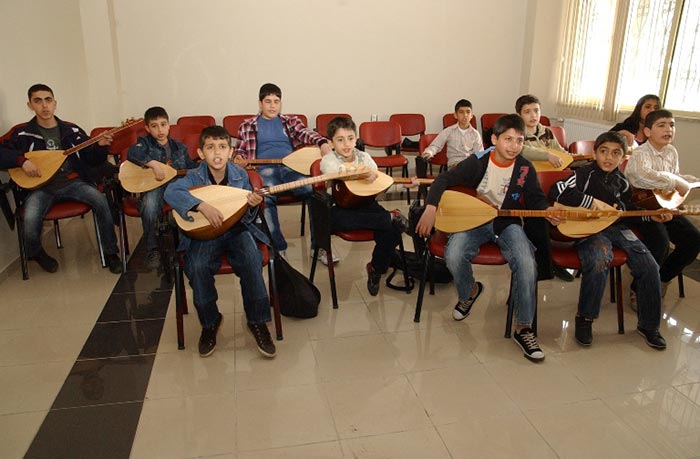[vc_row][vc_column][vc_single_image image=”86316″ img_size=”full” alignment=”center”][vc_column_text]This article is authored by a researcher who has requested anonymity.
Much has been publicised about the crackdown on freedom of expression in the aftermath of the failed coup attempt that transpired on the night of 15 July 2016 in Turkey. This is not the first time that Turkey has experienced a military coup; indeed, violent overthrows of elected governments had already occurred in 1960, 1971 and 1980.
In 1997, the military intervened once more, this by issuing a memorandum that aimed to rein in the Islamist agenda of Prime Minister Necmettin Erbakan and his Welfare Party Government. Widely called a “postmodern coup” the military effectively forced him out of office. Each of these coups has engendered a rupture in Turkish political life and has profoundly impacted the realm of arts and culture.
This quality of rupture was perhaps nowhere more contoured than in the military take-over of 12 September 1980, during which the junta under the leadership of Kenan Evren pursued “mass imprisonment, systematic torture, and disappearances” of oppositional, and especially leftist forces. The actual extent of the human rights violations that occurred has yet to be investigated in full but a few figures published by the Istanbul-based Truth, Justice and Memory Center give a glimpse of the social, political and cultural toll of the coup: “according to statistics, approximately 650,000 people were taken into custody, more than 1.5 million were blacklisted by the state, a quarter of a million were put on trial, and 300 lost their lives in various ways.”
Along with disbanding labour unions and limiting freedom of assembly and freedom of the press, the military junta also curtailed academic and artistic expression by establishing the state-controlled Higher Education Council (YÖK) and instituting various mechanisms to pre-screen and censor artworks, especially literary production and films, for years to come. What is often overlooked, however, is that each of these coups has also produced erasure and forgetting in the cultural history of Turkey, not least by curtailing associational life.
Associations that artists were part of were never simply closed, their archives were confiscated too. In this way, the memory of their work was not merely delegitimized but the material traces were likewise destroyed or made inaccessible to the generations that followed. While this dynamic has affected the realm of arts and culture in Turkey in general, the persecution, repression and erasures of Kurdish cultural and artistic production have certainly been the most consistent.
As Kurdish was long classified as an “unrecognised language”, and the existence of Kurds has long been denied in Turkey, Kurdish artistic production has been criminalised and frequently classified as separatist propaganda. Along with individual artists and works of art, Kurdish associational life – as a bedrock of artistic production and cultural reproduction that facilitates the transfer practices, knowledge and memory have been repeatedly targeted; their archives were confiscated and (possibly) destroyed many times over.
What sets this time apart, however, is that the coup attempt actually – and importantly – failed. Yet, the state of emergency declared on 21 July 2016, billed as a necessary tool to investigate the coup and bring the plotters to justice has expanded beyond members of the Gülenist movement to oppositional groups overall by way of Turkey’s vague anti-terrorism legislation. With the extension of the power of the state apparatus, we are, once more witnessing attacks on the field of culture and the arts in general, and Kurdish artistic production in particular.
As investigative journalist Elif İnce reported in January 2017: “Over 1,400 associations and foundations have been shut down with the state of emergency decrees […]. Kurdish arts and culture associations with prominent theatre companies, such as Seyr–î Mesel in Istanbul and various branches of the Mesopotamia Cultural Centre (MKM), are among those permanently shut.”
From September 2016 onwards the AKP government ordered state-appointed trustees to take over the municipalities of several Kurdish cities that had been governed by the pro-Kurdish HDP; their mayors are now facing various charges of aiding and abetting terrorists, and separatist propaganda. These municipalities had been supportive of Kurdish artistic production, both establishing new avenues for artists and assisting initiatives that had been built arduously through grassroots efforts during decades of violence and insecurity. Among the current cases of repression, the de facto closure of the Amed Art Gallery in Diyarbakir through the Ankara-appointed trustee left the city without public facilities to exhibit visual art. The municipal theatre, lauded by the AKP government just a few years ago for performing Hamlet in Kurdish, has likewise been disbanded. The same is true for the city theatres of Batman and Hakkari.
This recent wave of repressions has included sealing off performance and rehearsal spaces, and the confiscation of archives, props, and other equipment. It has extended from municipal theatres in the Kurdish regions to theatre groups affiliated with Kurdish arts and culture associations across the country. Archives are now digital and can be more easily saved, quite in contrast to the 1990s when the MKM were raided repeatedly, threatened by closure, their members often harassed and charged with separatist propaganda based on the mere fact that they pursued artistic production in Kurdish. The Kurdish cultural landscape has been very resilient and experienced in navigating these kinds of repression – and the erasures they engender. But will the same be true for the rest of Turkey’s art world?
Access to the past, to cultural and artistic memory, is intimately connected to freedom of expression. Along with human rights and democratic institutions, cultural memory is once again at stake, and under risk to be erased in Turkey. [/vc_column_text][vc_column_text]
Turkey Uncensored is an Index on Censorship project to publish a series of articles from censored Turkish writers, artists and translators.
[/vc_column_text][/vc_column][/vc_row][vc_row][vc_column][vc_basic_grid post_type=”post” max_items=”12″ style=”load-more” items_per_page=”4″ element_width=”6″ grid_id=”vc_gid:1492093371629-c08ef909-721a-10″ taxonomies=”8607″][/vc_column][/vc_row]







